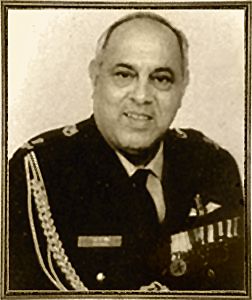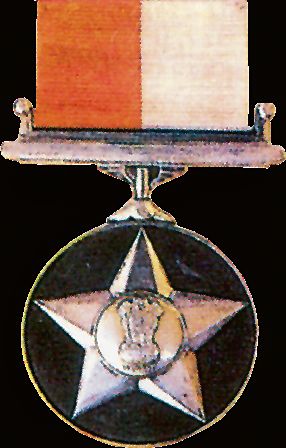Wg Cdr Swaroop Krishna ‘suppi’ Kaul: Co 37 Sqn In 1971

A little background first so that my association with Suppi Kaul can be understood in context. I was a young Flying Officer serving in 37 Squadron, ‘The Black Panthers’, in Hasimara from December 04, 1968 flying Hunters. When I joined the squadron in 1968, Wg Cdr MM ‘Rusty’ Sinha was commanding. He had already done over a year in command by then and was replaced by Wg Cdr PJ ‘Jackie’ Jakatdar in October 1969. Jackie almost immediately put me as the adjutant of the squadron, an appointment that I learned a lot from under Jackie and remained in till I left the squadron exactly four years later on December 04, 1972. Unfortunately, in just over a year in 1970, Jackie was replaced as the CO since he flew with a slight cold and busted his eardrum. Sqn Ldr AA ‘Bozo’ Bose then officiated as the CO for about three months, hoping to be promoted and take over the Squadron till April 01, 1971 when his course mate, Wg Cdr Swaroop Krishna ‘Suppi’ Kaul took over on promotion. Bozo remained in the squadron through the 1971 war as the senior flight commander, the other two being AB Samanta and AM ‘Mascy’ Mascarenhas.
It may be recalled that those days, April 01, or Fools’ Day’ was the Air Force Day and in the evening, there was a party in the Officers’ Mess. During the day, Suppi had largely cloistered himself with the flight commanders to get a brief on the squadron and given me just 15-20 minutes to brief him on the administrative state of the squadron. I had reported that the squadron was in fine fettle; we did not have any major issues of indiscipline, we had a good Airmen’s’ Mess running, most airmen were bachelors or staying single since there was hardly any married accommodation and morale was high despite this deficiency because the officers and the men were well-knit. I had a faint suspicion that Suppi was not totally convinced on discipline having seen the longish hair on most of us younger pilots. This was the wild east of those early days and considering that there was little entertainment for the younger lot outside, our parties were a little wild, a fact he must have known in Tezpur from where he had come. Anyway, the political problems had already started in East Pakistan and soon, from about May 1971, we were on readiness so he did not comment on the hair et cetera which would have been good cover to pass off as civilians in case any of us ejected over enemy territory and attempting to evade capture. This issue came up after the war but that is a separate story.

Wing Commander SK Kaul (R) with Flying Officer Harish Masand (C) explaining a recce route to Air Marshal Dewan, the C-in-C of EasternAir Command
Coming back to that evening, I think most of us said a perfunctory hello/good evening to Suppi and Mrs Nita Kaul and scooted off to the bar since he was the fourth CO most of us were seeing. Mascy soon coming rushing to the bar and literary pulled some of us to go and speak to Mrs Kaul. Reluctantly, some three or four of us went across. I immediately asked Mrs Kaul if she would like a drink, thinking that she would ask for a soft drink and on the excuse of getting her the drink, I would send it across and disappear. To our surprise, Mrs Kaul said very sweetly that she was waiting for someone to ask her and have a drink with her and asked if she could get a Gin and lime. I think she also wanted to escape the usual ladies corner talking of domestic issues. We soon had a roaring party going with her and enjoyed that and many more evenings with the Kauls bouncing them at their home. Soon, both their daughters, Shivy and Divvy around 6 and 4 years of age, became very friendly with us youngsters,. They even started competing for my lap; one would sit on my right thigh with the other on the left one. So, I told Mrs Kaul in jest that, at that rate, I would have to marry both the girls when they grow up and would, in anticipation, start calling her MIL, short for Mother in Law.
I describe this social bond that we all established with the Kauls to explain how close our relationship was, with its effects on the professional relation and events that followed, particularly in the war. Initially, Suppi was a little stern in the squadron as can be rightly expected, particularly with the youngsters, but soon mellowed though he never compromised on work or professional standards that he demanded from us nor did we ever try and take advantage of the social relationship. While I don’t think I disappointed him as the adjutant, having been trained well for the job by Jackie, he did demand that all the files and documentation be maintained meticulously. Towards, this, I still remember he would frequently demand that the flying training related boards and charts be maintained well and up to date, from Fg Offr Rajesh ‘Laloolee’ Lal, with moving beads on a string for each individual pilot as well as the squadron. Remember this was a time before computers or modern aids of today. It was the same for the squadron diary or Form 1500 for the squadron history from Fg Offr DK ‘Deb’ Ghosh.
Soon thereafter, our squadron was chosen for an additional role since Suppi had a lot of previous experience in Fighter Reconnaissance (FR) with cameras on Vampires. Accordingly from May-June 1971, around six fighter aircraft and a trainer of the squadron were modified with Vinten cameras, two side-looking F-95s and a forward-looking F-135 in the nose. As soon as the trainer was ready, Suppi trained some of us in this role. By October 1971, Suppi and I were doing FR missions inside East Pakistan photographing areas/targets of interest. That is when I realized how good Suppi was in low-level navigation. I used to make the maps for him correlating the areas/targets from the quarter inch or even one-inch maps and transferring these to the million maps on which we navigated in fighters. Since I had made the maps, in two sets, I remembered all the important features and check points almost by heart. As his wingman, my job was to keep abreast of him around 2000 yards and keep the tail of the formation clear while we navigated to the target and then let the cameras roll from my side too when he called. Almost from the first such mission over hostile territory, I realized that I didn’t ever have to look at the map: if a check point was to be crossed at 7 minutes and 50 seconds, I just had to glance at the ground at that time and the check point would be right there where it was supposed to be. I picked up his navigational method pretty fast and used it extensively later in my life. Due to his accurate navigation and gentle corrections in course/speed in total radio silence, I could maintain my designated stations with ease and devote a major portion of my attention to scanning the skies around and behind for any enemy threat. That is how I spotted the two Sabres well in time on the very first mission on December 04, 1971 but hat is another story, already described and published in my article entitled ‘The 04 th Of December 1971’.
How I came to be Suppi’s almost permanent wingman for the war is also another slightly humorous story. Actually, though we got along well, as described earlier, I suspect Suppi did think that I was a little wild and rebellious since he used to call me the angry young man though he never clarified in detail except to say once that I always asked questions. Around July-August 1971, Suppi decided that we should form permanent pairs for the war and trained in that manner so that we had better understanding of each other and worked better as a team. Rightly, he took a more ‘disciplined’ and a less wild pilot, Suresh Malhan, as his wingman. Suresh was also a topper in his course and being from NDA and sword of honor type, he was very proper and upright in all activities, and almost a teetotaler to boot. Suresh was undoubtedly a good flier so Suppi had made the right choice. Unfortunately, Suresh was riding a motorcycle on a blackout evening in the preparatory period and met with an accident busting his legs that took him out of fighter flying. Suresh later went on to distinguish himself on helicopters. Suppi then chose me and that is how I came to fly with him on most of his wartime missions.

Wing Commander (later Chief of Air Staff) SK Kaul
Suppi and I did some nine FR missions before the war, the last one being as late as December 02 over Comilla and Lalmai Hills for 4 Corps. Taking off from Gauhati we landed in Kumbhigram around noon because we didn’t have the gas to get back. The photo section in Kumbhigram developed the films, 6000 frames between the two of us. That is when I noticed another great quality in Suppi. He did not just leave the job to me, which he could have as the boss, but worked with me till almost two in the morning looking at the photos and marking out gun positions, troop concentration and the defensive works on each frame with a chinagraph pencil since there was no photo interpreter available there and the intelligence was required urgently by the Army. In this effort, in a lighter vein, we were sustained by a bottle of scotch given to us by my coursemate, Rupinder Singh, who was in Kumbhigram on helicopters. Suppi was also gracious enough to thank Rupinder profusely for his generosity. We had the films sent off to 4 Corps headquarters in Teliamura before we flew back to Hasimara the next morning to get into the war the very next day.

As described in detail in my article, we were to launch the first raid of four Hunters on Tezgaon airfield on Dceember 04, call sign Mission 501, ToT of 0705 IST/0635 East Pakistan Time. The formation comprised of Suppi in the lead, Billoo Snagar as his wingman, Mascy as number 3 and me as number 4. Suppi’s aircraft did not start so he jumped into the standby aircraft. Mascy’s aircraft also did not start so we took off as three aircraft. After take-off, my landing gear refused to go up and I started trailing the lead section of Suppi and Billoo for quite some time till I finally decided to use the emergency override switch and get the gear up and catch up. While I was having this problem, Suppi could have easily aborted the mission since two of the four aircraft had fallen out but he continued, displaying his courage and dedication to the task given to him. Fortunately, we finally went in as three aircraft since we were bounced by two F-86 Sabres about two minutes short of target and had to engage them in combat because the MiG-21s from Gauhati could not give us the cover they were supposed to by then.
Throughout the war and many missions we did together, Suppi was cool and did not ever flinch from facing the heavy anti-aircraft fire over Dhaka or the initial threat of enemy Sabres. He was also open to suggestions from youngsters like me on the planning of missions and attacks, which resulted in great team effort for more effective attacks with minimum losses. At no time did I ever feel that he was bossing around because, while flying, he behaved as a team member, though leader. As a matter of fact, since we had got to know each other’s flying and capabilities so well, there were hardly any radio calls between us since I understood every move he made in the air and, perhaps, even anticipated it sometimes. Due to adaptation of different attack patterns through such open discussions between us, we survived the war, without a scratch at least when we were together, even in the attacks on Governor’s House in Dhaka on December 14 and the University area on the 15 th wherein the anti-aircraft fire was really thick. It may be recalled that a Canberra was lost to such fire even on the last day of the war.
Suppi was also a compassionate human being and cared about his subordinates, officers or men. I personally experienced how he handled the loss of my younger brother, a paratrooper, during the war when the unfortunate news came to him on December 10. He called me to his office at the end of the day, without a note pad which I always carried to his office as the adjutant, on the pretext that he just wanted to chat with me. Slowly, and very gently, he broke the bad news to me and told me to get drunk that night and take the next day off, an offer that I firmly declined. He even sent Mascy to our room where my roommate, Deb Ghosh, and Mascy, kept me company and shared a relatively somber evening with me. Promptly, after the war, Suppi gave me an aircraft to ferry to the BRD in Kanpur and told me to take a couple of days off to visit my parents in Indore from there even though no leave was being granted at that time because we were still on alert just in case and personnel could not be spared, and particularly the adjutant for all the administrative backlog of the war.
We are still in touch with Suppi, talk regularly and visit him whenever my travels take me through Delhi, all the more since, unfortunately, MIL passed away a few years ago. I could narrate so many more stories of the past, with Suupi and MIL in there, but would leave it here due to constraints of space, with our best wishes for his health, happiness and long life.
Modified version by Arjun Subramaniam & Harish Masand at
Tribune India news